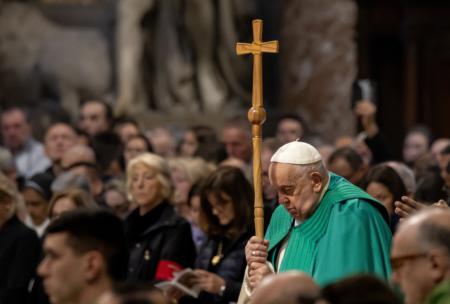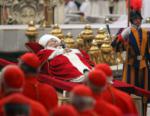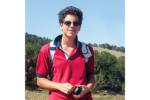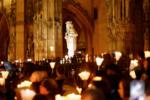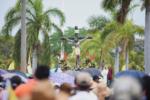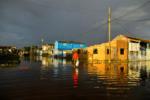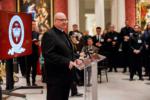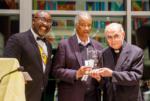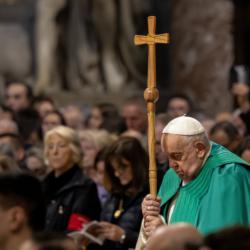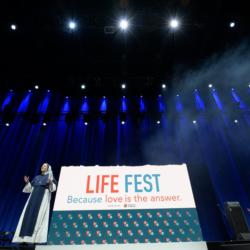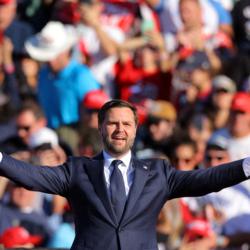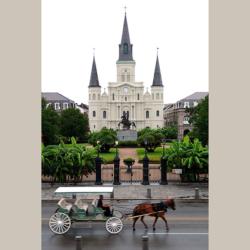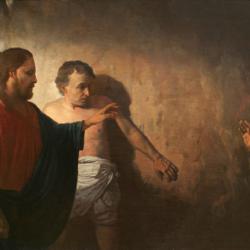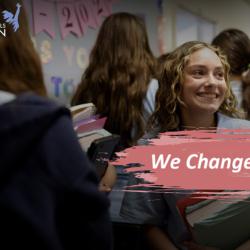Archdiocese seeks faithful's input for synod process
BRAINTREE -- Being a Christian involves a lot of listening. Christians listen for the voice of God, and to the voices of their shepherds. Those in leadership roles listen to each other and to the faithful. Now, the Church is holding a synod about how to be better listeners, and the Archdiocese of Boston is taking its first steps to do this on the local level.
The Church has opened a synod process on the topic of synodality, with the theme "For a Synodal Church: Communion, Participation, and Mission." The synod process, informally known as the "synod on synodality," opened in Rome on the weekend of Oct. 9-10 and in particular churches on Oct. 17. An opening Mass will take place at the Cathedral of the Holy Cross on Nov. 27 at 4:30 p.m. to mark the synod's beginning in the Archdiocese of Boston.
In preparation for the diocesan phase of the synod process, the archdiocese has set up a preliminary survey, inviting the faithful to share their ideas for how the Church can better listen to her people at various levels. Though anonymous and confidential, the survey asks some demographic questions, such as the participant's location, age, ethnicity, and status as a layperson, clergy, or religious. Then, it has boxes for participants to briefly answer questions about how parishes, the archdiocese, and the universal Church can listen to their people.
Father Paul Soper, archdiocesan Secretary for Evangelization and Discipleship, said they hope the survey responses will give Cardinal Seán P. O'Malley some material to draw upon as the diocesan phase of the process begins.
"This survey is, in large part, to provide some beginning thoughts for him in how to address this. But it's only a beginning," Father Soper said.
He explained that the term "synodality" refers to Church leaders listening to others' input in the decision-making process -- for example, a pastor consulting with his parish council and parishioners, or a bishop consulting with his cabinet and diocesan councils.
The word "synod" comes from the Greek ''syn-hodos," meaning "the same way" or "the same path." In the Church, it refers to a gathering, traditionally of bishops, to discuss important issues in the life of the Church so that her members can journey forward together. Synods were common in the first centuries of Christianity, and, in 1965, Pope Paul VI instituted the Synod of Bishops at the universal level of the Church in order to continue the kind of dialogue shared at the Second Vatican Council.
Whereas past synods have focused on particular issues in the Church and in the world, such as the recent Synod on the Amazon, the "synod on synodality" will examine how the Church listens to people and what methods have worked well or poorly.
"It's a question about how do we listen to the Church and the world about the issues, rather than about the issues themselves," Father Soper said.
He said the diocesan portion of the process will not only aim to contribute to the global conversation, but also consider how to improve synodality at the parish and diocesan levels. The hope, he said, is that conversations will take place that will strengthen communication between pastors, parishioners, parish councils, finance councils, and other structures within Catholic communities.
Bishop Robert Reed, auxiliary bishop for the West Region and president of CatholicTV, said he thinks it important not to look at the synod process as "a six-month event."
"We're not necessarily trying to create a splash or another program, but rather in the long term to become more of a listening Church here in the archdiocese, to become more the Church that we're really called to be, the Body of Christ, and that means that, with great reverence, we listen to one another," Bishop Reed said.
He said they are trying to make the process "simple and clear," although it has an "ambitious" goal, "to renew our mentalities, renew our structures in order to live out God's call for the Church more completely here in Boston."
He recalled the words of the Second Vatican Council stating that the people of God have "a prophetic role" to play.
"In this process, no one should be excluded. We're trying to cast the net as wide as possible," Bishop Reed said.
Father Soper and Bishop Reed emphasized that the archdiocese's survey is only a first step in preparing for the discussions that will take place during the synod. Additional questions will be distributed to the archdiocese's Presbyteral Council, the Archdiocesan Pastoral Council, and parish pastoral councils and finance councils. Five regional sessions will also take place and will be open to the public.
All the feedback collected during the diocesan phase will be compiled into a 10-page document, which will be submitted to the U.S. Conference of Catholic Bishops shortly after Easter in 2022.
A closing liturgy will take place at the Cathedral of the Holy Cross in late April 2022 to mark the end of the diocesan phase of the synod process. A continental phase will take place from September 2022 to March 2023. Finally, a universal phase will begin with the XVI Ordinary General Assembly of the Synod of Bishops in October 2023, followed by an implementation phase for particular churches.
The Archdiocese of Boston's survey and schedule for the synod are available in different languages at the following web addresses:
English: files.constantcontact.com/60393a2a701/4322af5b-ccb7-487e-b775-d6edfb993cca.pdf
Spanish: files.constantcontact.com/60393a2a701/1f0f4af2-b854-488e-9a39-4954463c71bf.pdf
Portuguese: files.constantcontact.com/60393a2a701/de18c3ce-130f-4169-a800-7e1d9a1aeceb.pdf
French: files.constantcontact.com/60393a2a701/d9aad88f-6567-4cbe-ac64-a2b464c14c79.pdf.
